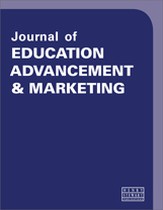Two methods for motivating faculty giving
Abstract
In 2020, the combination of fear of illness due to the COVID-19 pandemic, volatility of the financial markets, violence, social isolation and political unrest left many Americans shaken. These difficulties certainly affected university faculty members, who, in addition, often had to pivot to online delivery and administration. A natural response, when facing adversity, is to reduce charitable giving in order to save for emergencies of personal or family need. This choice might also reduce charitable giving by faculty members to the universities where they teach. In addition, faculty members might personally still be adjusting to the tax changes implemented by the Tax Cuts and Jobs Act (TCJA) of 2017. TCJA essentially doubled the standard deduction available to US taxpayers. Because of the increase, fewer faculty members are itemising deductions. Therefore, these faculty members no longer receive any federal tax benefit from making charitable contributions. To motivate charitable giving among university faculty, university foundations and departments of advancement should educate faculty members about the tax saving strategies of philanthropic giving to their universities by making qualified charitable distributions directly from retirement accounts and/or using donor-advised funds.
The full article is available to subscribers to the journal.
Author's Biography
Anne Duke is a practicing Certified Public Accountant and an associate professor of Accounting at the University of North Georgia. Anne holds a Bachelor’s degree and Master’s degree in Accounting and a PhD in Consumer Economics from the University of Georgia. Dr Duke and Dr Poff (below) both strive and desire to help clients, students and colleagues truly understand financial planning and tax-strategy options to assist in decision making of the highest quality.
J. Kent Poff is a practicing Certified Public Accountant and an associate professor of Accounting at the University of North Georgia. Kent holds a Bachelor’s degree in Accounting from the West Virginia Institute of Technology, an MBA from the West Virginia College of Graduate Studies and a PhD in Tax Accounting from Virginia Polytechnic Institute and State University.
